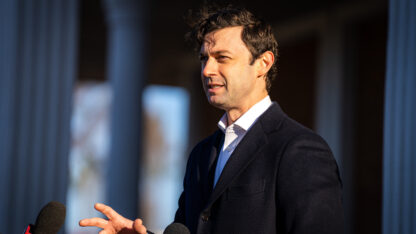HPV Vaccine Rate Flatlining

Public health officials say the rate of vaccinating teens against the human papillomavirus, or HPV, has plateaued, with Georgia lagging behind the national average in vaccinations for young girls.As heard on the radio
Speaking at the Immunize Georgia conference Thursday morning, Assistant U.S. Surgeon General Dr. Anne Schuchat said since 2009 the HPV vaccination rate has flatlined since it was first approved in 2006.
She said that’s been a wakeup up call to the public health community to start doing more outreach with local health officials to get the vaccination rate up.
“If we kept the same business as usual of the amount of folks we were vaccinating and the amount of folks we were missing, this generation of girls was going to be destined for thousands of preventable cervical cancers,” she said.
HPV is a sexually transmitted disease that can cause cervical cancer, as well as cancers of the vulva, vagina, penis or anus.
Schuchat said nationally only about 55 percent of teen girls received the first round of the three-part vaccine. As of 2012, only about 33 percent of all teen girls had received the full three doses.
The vaccine is recommended for girls and boys ages 11 and 12, and that’s caused some push back from parents who worry the vaccine could encourage kids to have sex sooner.
Schuchat said the idea is to vaccinate kids and before they’re exposed to HPV so they’ll be protected if they do become sexually active.
“As a country we’re not doing very well, but Georgia is in the bottom half of the country,” she said.
Schuchat said only about 45 percent of girls in Georgia have gotten the first part of the vaccine.
Among boys, Georgia was slightly ahead of the national average of about 38 percent, still lower than Schuchat would like to see.
“People aren’t that comfortable thinking about sex, let alone talking about sex,” Schuchat said. “But we think when we’re talking about an 11 or 12 year old, or you bring your young preteen into the office, you don’t really have to talk about that at this point. What you need to know is what vaccines are recommended today, and what are they for.”
And Schuchat said when it comes to the HPV vaccine, pediatricians should stress the vaccine is for preventing certain types of cancer.
She also encouraged health care providers to recommend the HPV vaccine as part of the meningoccous and T-DAP vaccines.
9(MDAxODM0MDY4MDEyMTY4NDA3MzI3YjkzMw004))







